As a homeowner in Fort Worth, Texas, foundation issues can be a daunting problem to face. The city’s expansive clay soil and extreme weather conditions are the primary contributors to foundation issues. However, if you detect signs of issues early and act promptly, you can prevent further damage to your home. In this article, we’ll delve deeper into the causes, signs, and solutions for foundation problems in Fort Worth.
Causes of Foundation Issues
As mentioned earlier, the primary cause of foundation issues in Fort Worth is the city’s expansive clay soil. When soil is exposed to moisture, it expands and contracts, disrupting your home’s foundation. Furthermore, extreme weather conditions- droughts and heavy rainfall, can lead to foundation problems. Poor drainage systems, improper construction practices, and tree roots can also cause foundation issues.
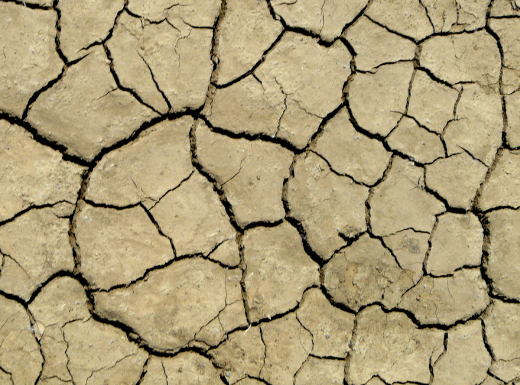
Signs of Foundation Issues
Identifying signs of foundation issues is crucial for preventing further damage. Here are some common signs to look out for:
Cracks in Exterior Walls, Floors, or Ceilings
It’s essential to know the different types of cracks and when to be concerned. Cracks that are wider than 1/8 of an inch or accompanied by other signs, such as uneven floors or doors and windows that won’t close correctly, should be evaluated by a foundation repair specialist.
Vertical cracks that run straight up and down are generally less concerning than horizontal or diagonal cracks, which can indicate more severe foundation trouble.
Horizontal cracks can indicate that the foundation is experiencing pressure from the soil, water, or other external forces. This pressure can cause the foundation to shift, leading to significant damage to the structure of the house. Diagonal cracks, on the other hand, can indicate that the foundation is rotating or twisting, which can cause the foundation to become unstable and lead to further damage.
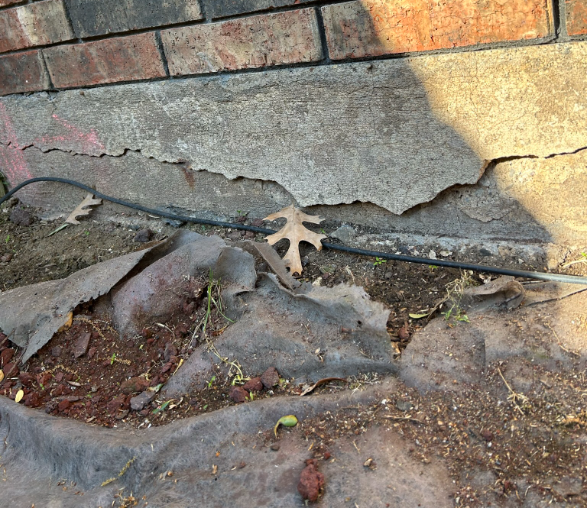
Stair-step cracks are a type of diagonal crack that can indicate foundation damage. These cracks often appear in brick exterior walls and can be a sign of foundation settling or shifting.
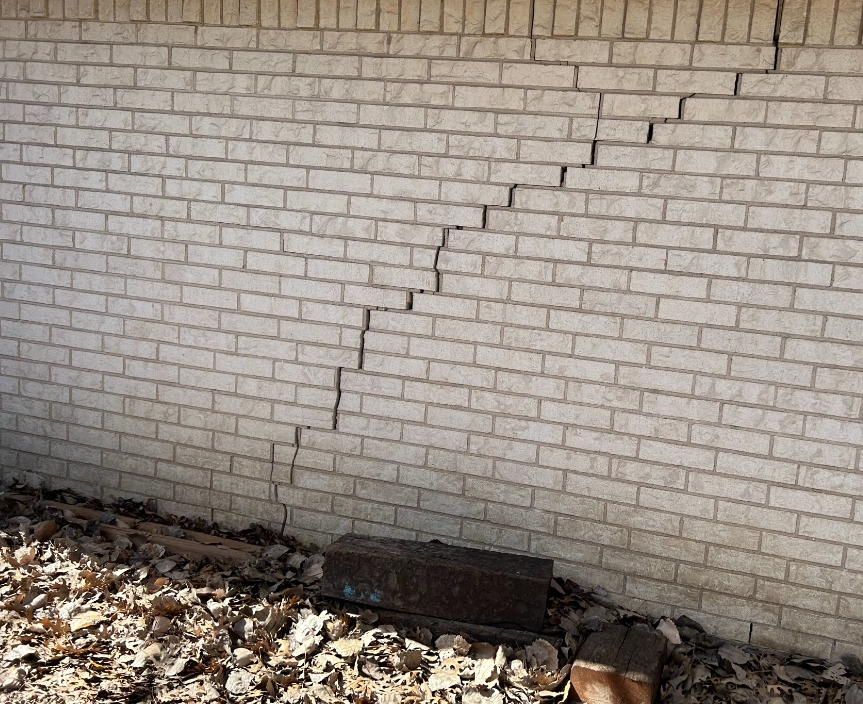
Doors and Windows That Stick or Won’t Close Properly
When the foundation shifts or settles, it can cause the frame of the house to become distorted, preventing doors and windows from closing correctly. This can lead to air leaks, water infiltration, and increased energy bills.
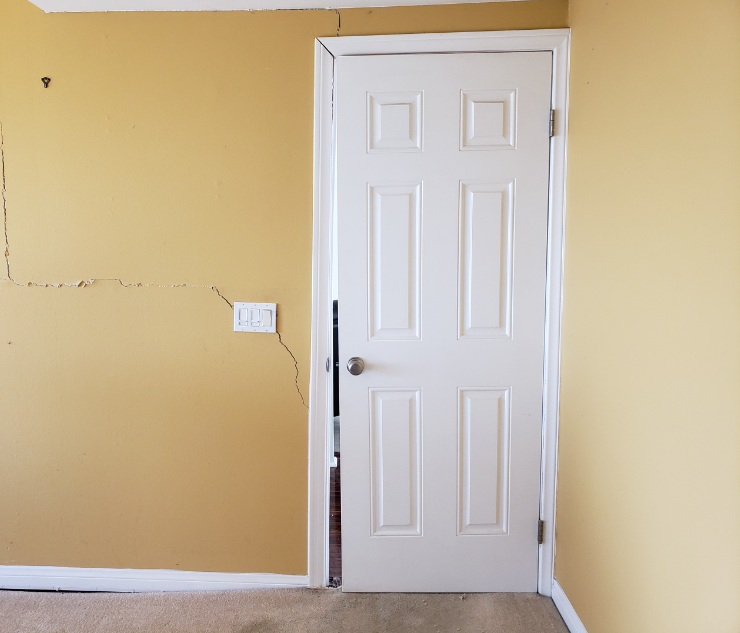
Gaps Between Walls, Ceilings, Floors and Door Frames
Foundation settlement or shifting can cause walls to separate from the ceiling or floor. Foundation damage can also cause door frames to become misaligned, resulting in visible gaps or uneven spacing. These gaps can allow insects, pests, and outside air to enter the home, compromising the integrity of the house and reducing energy efficiency.
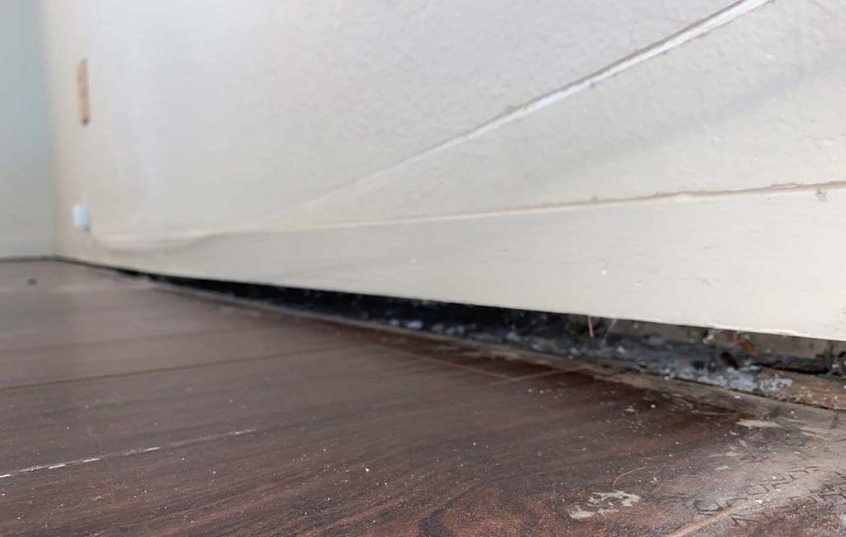
Uneven Floors
Homeowners can detect uneven floors by placing a level on the floor or observing if furniture or other objects tilt or wobble. The foundation can settle unevenly or shift, causing the floors to slope or become uneven.
Sagging or bouncing floors can also be a sign of foundation issues. The foundation may have lost its structural integrity, causing the floors to become unstable.
Water Damage
Water damage in the form of mold or mildew can indicate foundation problems. If there is excess water seeping into your home, it can weaken the foundation.
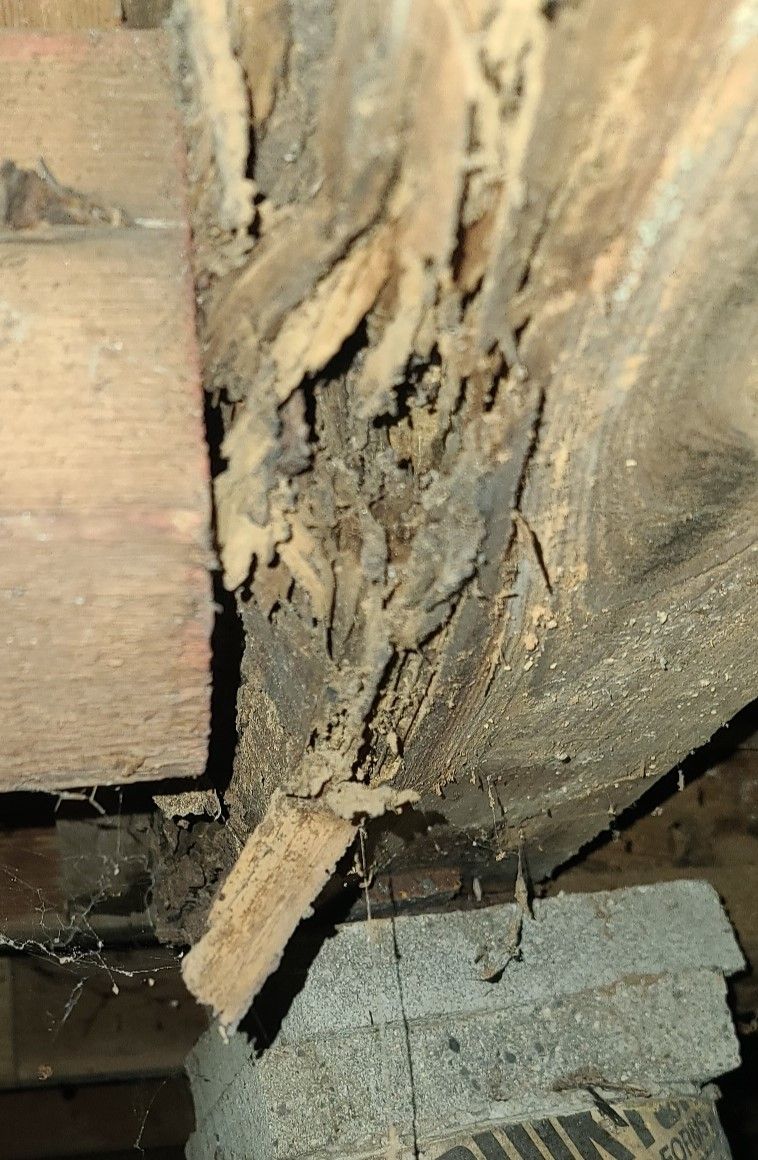
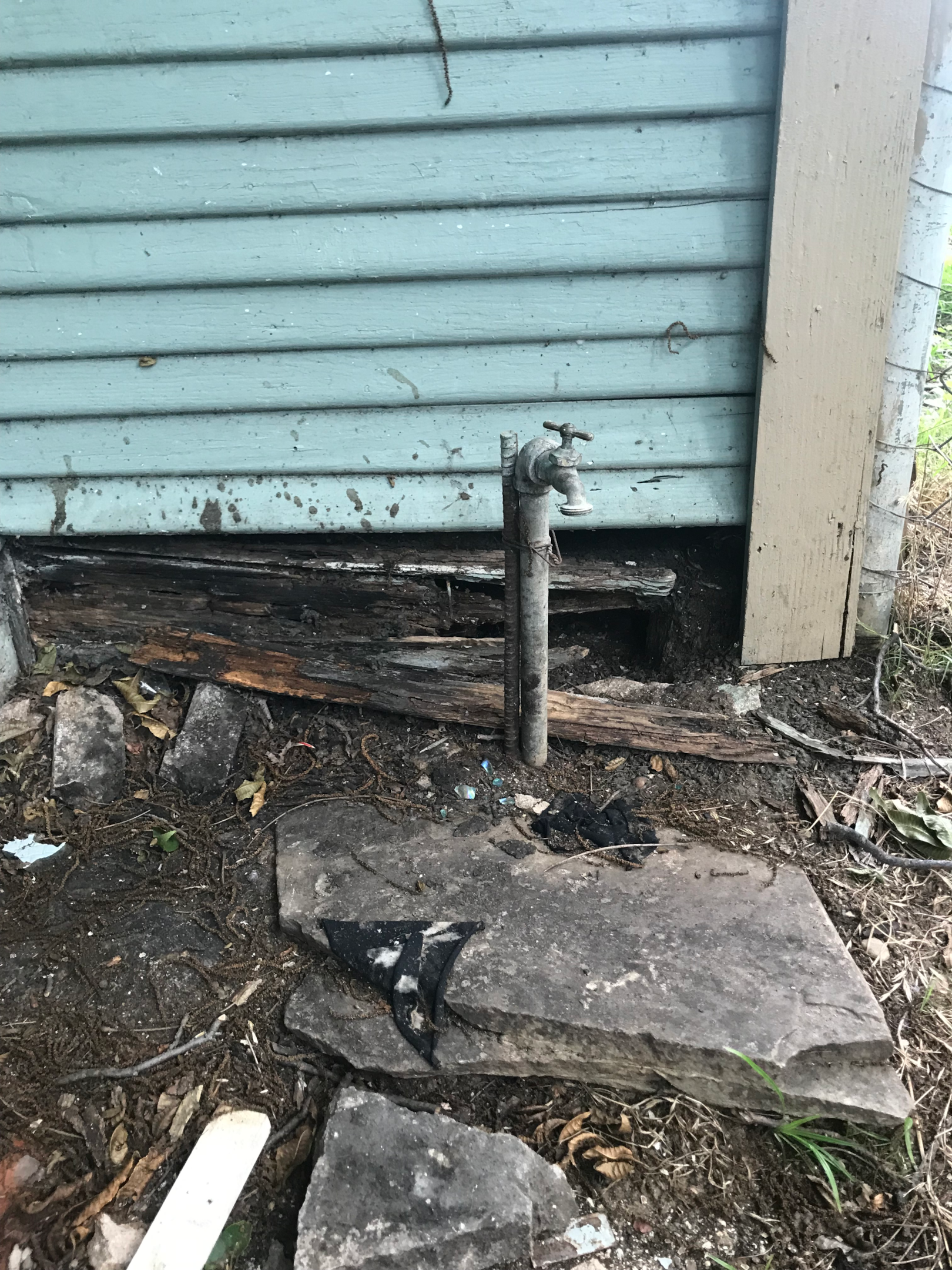
Cracks in Chimney or Fireplace
If you notice cracks in your chimney or fireplace, it could be a sign of foundation issues. The foundation can shift, causing damage to the chimney or fireplace.
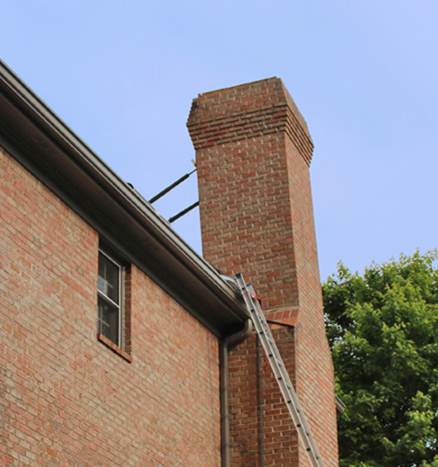
Sagging Roof Line
A sagging roof line can be another sign of foundation issues. The foundation can shift, causing the roof to slope or sag.
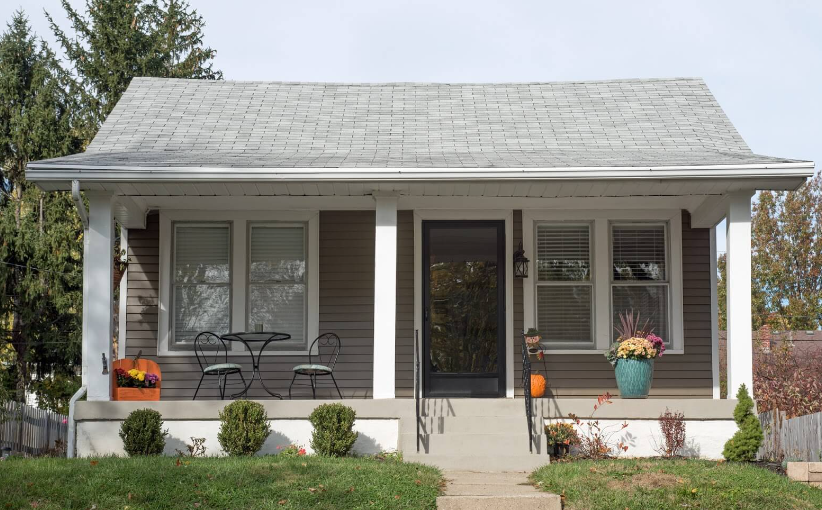
DIY solutions for Foundation Issues in Fort Worth
If you detect signs of foundation issues, you must act quickly to prevent further damage to your home. The appropriate solution will depend on the extent and cause of the foundation issue. Here are some things that YOU can do to help assess and prevent foundation damage:
Monitor your foundation regularly
Monitoring your foundation regularly is essential in detecting any potential foundation problems. Homeowners should keep an eye out for signs such as cracks in walls, uneven floors, and doors and windows that won’t close correctly.
Keep the soil around the foundation adequately moistened
The soil around the foundation needs to maintain adequate moisture levels to prevent foundation problems. Too much moisture can cause the soil to expand, while too little moisture can cause the soil to shrink, putting stress on the foundation. It’s crucial to keep the soil around the foundation adequately moistened by using a soaker hose or other irrigation system.
Install drainage systems
Proper drainage is crucial. Water accumulation around the foundation can cause the soil to shift and settle, putting stress on the foundation. Installing a drainage system, such as a French drain or surface drain, can prevent water from accumulating around the foundation and redirect it away from the home.
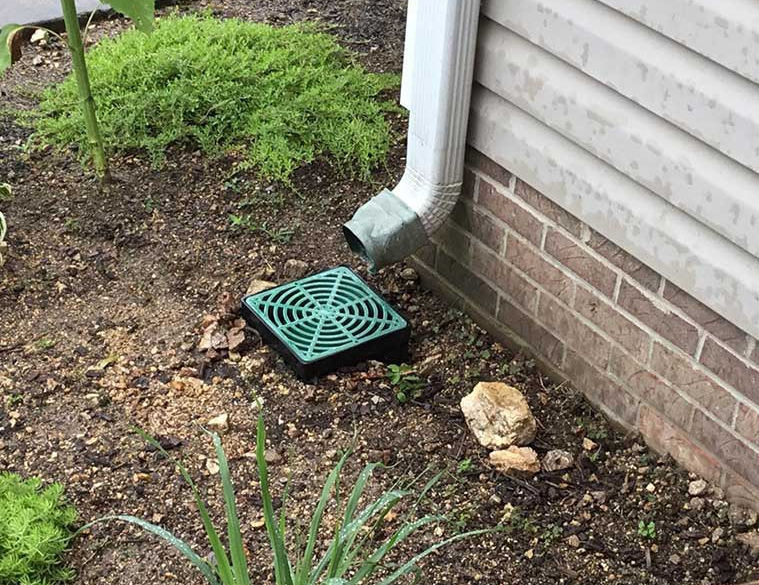
Address plumbing leaks promptly
Plumbing leaks can cause water to accumulate around the foundation, leading to foundation problems. Homeowners should address any plumbing leaks promptly to prevent water from accumulating around the foundation. It’s essential to inspect your home’s plumbing system regularly for any leaks and repair them immediately.
In addition to repairing the foundation, it’s crucial to address any water damage that has already occurred. This may include removing mold, replacing damaged wood, and repairing any other damage caused by the water infiltration. Ignoring issues can lead to more severe damage and costly repairs.
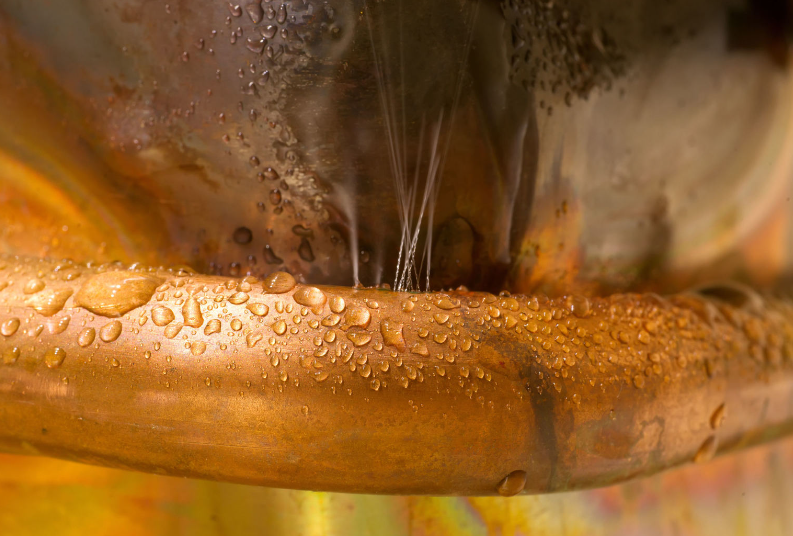
Trim trees and shrubs near the foundation
Tree roots and shrubs can contribute to foundation trouble by drawing moisture from the soil and creating pressure on the foundation. Homeowners should trim trees and shrubs near the foundation to prevent them from reaching the foundation. It’s essential to create a distance of at least 5-10 feet between trees and the foundation. If necessary, install a root barrier to keep roots from interfering with the foundation.
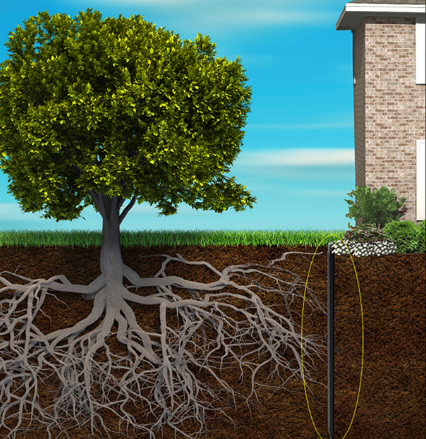
Go under the house into the crawl space and see it for yourself.
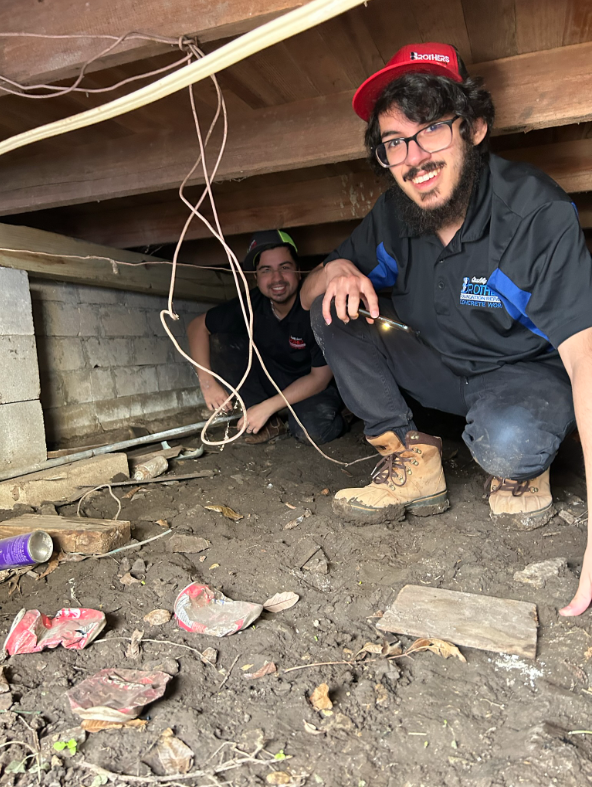
The Crawl space is where you need to go to look for key foundation repair signs. Crawling below your house and assessing damage for yourself can be daunting, but here are some steps you can take:
Wear protective gear: Before entering the crawl space, it’s essential to wear protective gear such as a dust mask, gloves, and knee pads to protect yourself from potential hazards.
Inspect the foundation walls: Once in the crawl space, inspect the foundation walls for cracks, water damage, or any signs of settling or shifting. Use a flashlight to get a better look for any signs of damage.
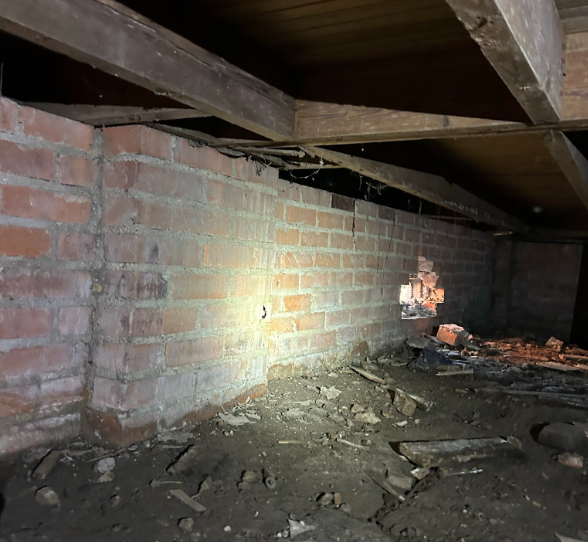
Check for moisture: Moisture can be a significant contributor to foundation problems. Check for any signs of water damage or excessive moisture in the crawl space. If you notice standing water or high humidity levels, it’s essential to address the issue promptly.
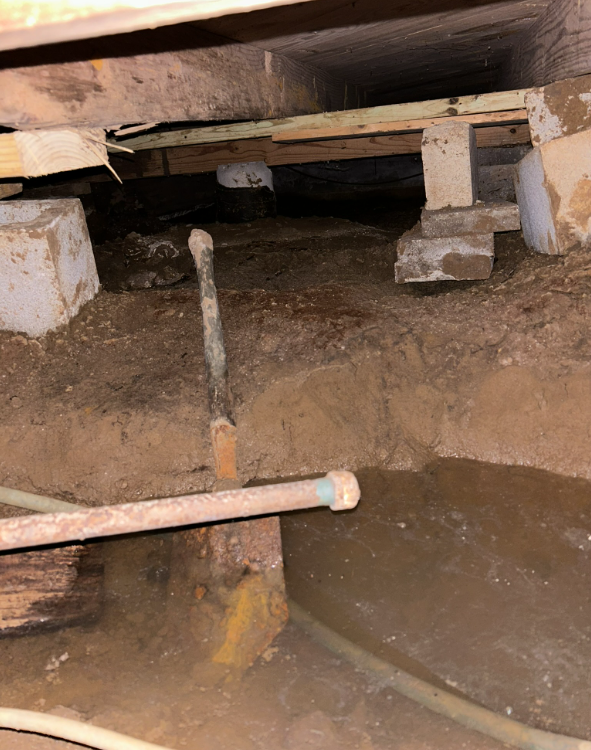
Look for uneven floors: Check the crawl space for any signs of sloping or uneven floors.
Check for pests: Pests such as termites and rodents can cause damage to the foundation. Look for any signs of pest activity in the crawl space, such as chewed wood or droppings.
Inspecting Basement Walls
Basement walls can be an important indicator of foundation damage in a home. Here are some things to look for:
Cracks: Look for cracks, which can indicate shifting or settling of the foundation. Vertical cracks that are less than 1/4 inch wide are generally not a concern, while wider or horizontal cracks may require professional inspection and repair.
Bulging or bowing: If the walls appear to be bulging or bowing, it may be a sign of foundation damage. This can be caused by hydrostatic pressure from the soil or water pushing against the foundation.
Efflorescence: Efflorescence is a white, powdery substance that can form on the walls. It’s caused by the accumulation of minerals from water seepage through the foundation. While efflorescence is not necessarily a sign of foundation damage, it can indicate the presence of excess moisture and should be addressed promptly.
Water damage: Look for any signs of water damage, such as stains or discoloration. Water damage can weaken the foundation and lead to further damage if not addressed promptly.
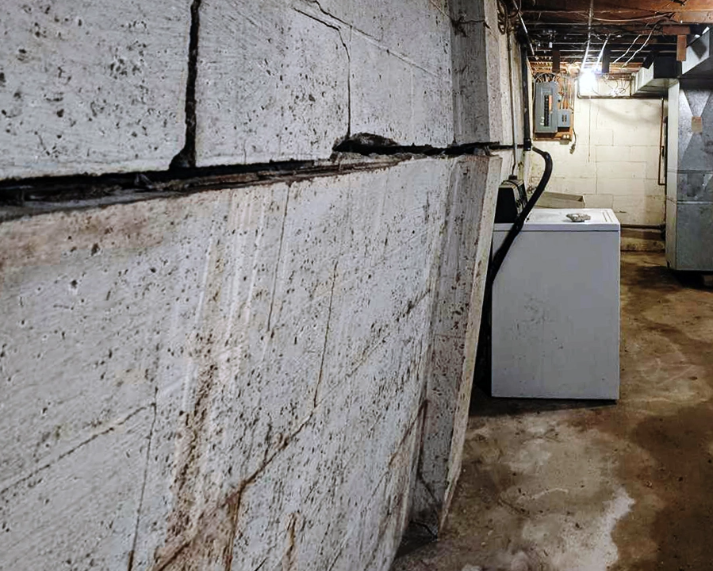
Professional Solutions for Foundation Repair
If you are concerned that damage to your home’s foundation is serious, please contact a professional to get an assessment and discuss potential action plans. As foundation repair professionals, here is what Brothers Foundation Repair can do:
Free estimates
At Brothers Foundation Repair, we understand the importance of having accurate and transparent pricing for foundation repair services. That’s why we offer free estimates for all foundation repair projects. Our team of experienced professionals will assess your foundation and provide you with a detailed estimate of the cost of repairs.
We believe that every homeowner deserves to have access to affordable and reliable foundation repair services, and our free estimates ensure that there are no surprises when it comes to the cost of repairs.
Drainage Correction
We offer a variety of drainage correction solutions, including French drains, surface drains, retaining walls, and landscaping modifications. Our team of experienced professionals can assess your specific drainage issues and recommend the appropriate solution to ensure the safety and stability of your home. Don’t let drainage issues go unchecked – contact us today to schedule a free inspection and get started on correcting any drainage problems.
House Leveling
House leveling is a common service offered by Brothers Foundation Repair
Lifting: Our team will use hydraulic jacks to lift the foundation back to its original level. This process may involve lifting the foundation in sections to ensure that the process is done safely and accurately.
Piers: In some cases, piers may be installed to provide additional support to the foundation. This is particularly common in situations where the soil composition is unstable or the foundation is settling due to poor drainage.
Pier and Beam or Slab Foundation Repair
Pier and beam foundations are common in older homes and may require repair due to settling or other issues. Our team of experts can evaluate your foundation and recommend the appropriate repair solution. This may include installing new piers, replacing damaged beams or joists, or other repairs.
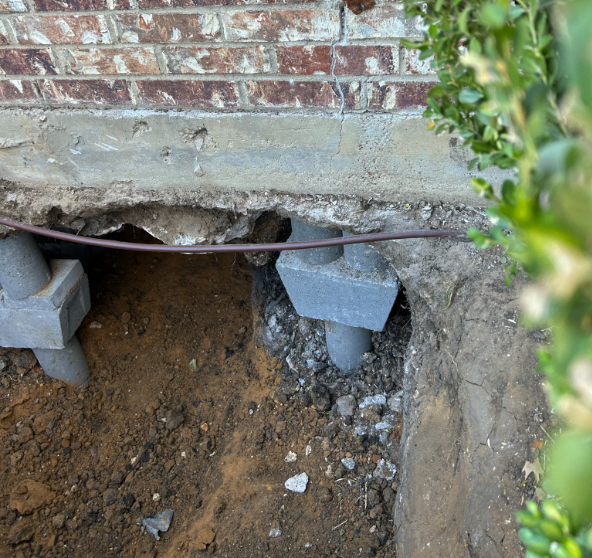
Slab foundations are common in newer homes and may require repair due to settling, cracking, or other issues. Our team can assess the extent of the damage and recommend the appropriate repair solution. This may include installing steel piers, mudjacking, or other methods to lift and level the foundation.
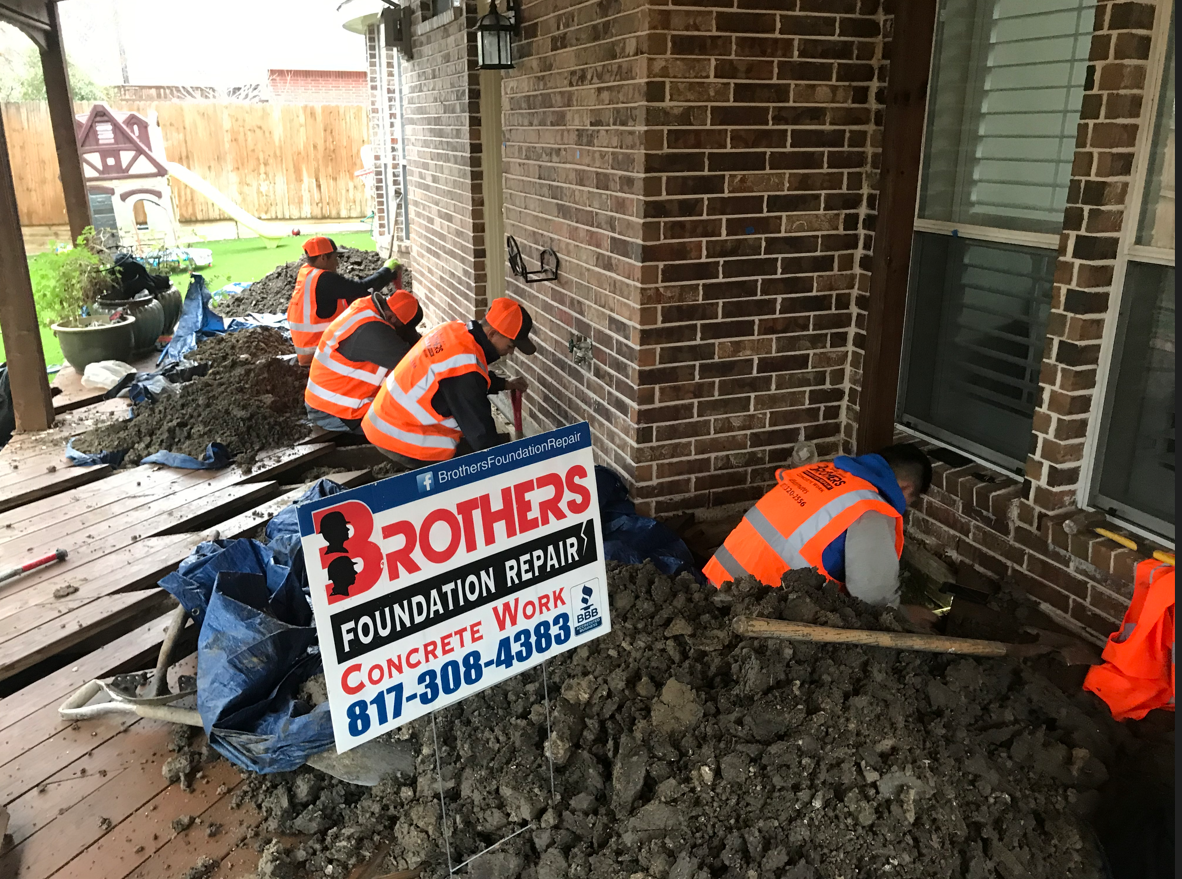
At Brothers Foundation Repair, we use state-of-the-art technology and techniques to ensure that all foundation repair services are done safely and accurately.
In conclusion, foundation problems can be a significant concern for homeowners in Fort Worth, but they are not insurmountable. By being aware of the common causes and locating the signs you can take action early on to prevent further damage.
Contact a foundation repair specialist if you suspect foundation problems in your home. Remember that early intervention is critical to ensuring the structural integrity of your home, and regular maintenance can help prevent problems from occurring in the first place.
No one wants to spend their hard-earned money on something you can’t see, but ignoring foundation problems tanks a house’s value and will cost more long term. Uncover the Ultimate Guide to Foundation Cracks, offering valuable insights into their causes, prevention methods, and effective repair solutions. Empower yourself with knowledge and safeguard your property. Access the guide today!
FAQ:
How long does foundation repair take?
The length of time required for foundation repair varies depending on the severity of the damage and the type of repair needed. Most repairs take a few days to a few weeks to complete.
Can I stay in my home during the foundation repair?
In most cases, you can stay in your home during foundation repair. However, there may be some disruptions to your daily routine, such as noise or restricted access to certain areas of the house.
How much does foundation repair cost?
The cost of foundation repair varies depending on the severity of the damage, the type of repair needed, and the location of the home. On average, foundation repair can cost anywhere from a few thousand dollars to tens of thousands of dollars.
Will foundation repair fix all of my home’s problems?
Foundation repair can address issues related to the foundation, such as cracks in the foundation, walls, or floors, and uneven floors. However, other issues, such as plumbing leaks or electrical problems, may require separate repairs.
Will my insurance cover foundation repair?
In most cases, insurance does not cover foundation repair unless it is caused by a covered event, such as a natural disaster or plumbing leak. It’s essential to check with your insurance provider to understand your specific coverage.
How often should I have my foundation inspected?
It’s recommended to have your foundation inspected by a professional every 3-5 years, or sooner if you notice any signs of damage. Regular inspections can help catch potential issues early and prevent costly repairs in the future.